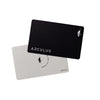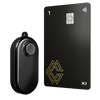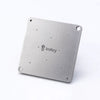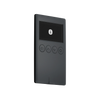
Lately, cryptocurrencies have attracted much interest as a possible investment source. This explosion of digital resources has made strong security measures to fight hacking and other cyberattacks more crucial. Here is where hardware wallets find applications. Let's start with the foundations of hardware crypto wallets: their operation, security mechanisms, and some important market players.
Hardware Crypto Wallet
It is a physical device, akin to a fortified vault, designed to safeguard private keys and prevent digital theft. These keys are crucial in the cryptocurrency realm as they enable the holder to execute actions on the blockchain and verify transactions. By keeping these keys offline, hardware wallets protect them from online threats.
These devices are popular because they serve as sentinels in the digital landscape, employing advanced security methods to protect your digital assets. By keeping the secret key offline, users can rest assured that their cryptocurrency holdings are secure.
Hardware wallets are not just about keeping your keys offline; they come packed with sophisticated features like recovery protocols, two-factor authentication, and PIN-based access. Think of them as modern-day strongholds, providing a high level of security for your virtual treasures. Embrace the potential of hardware wallets as they embody the strength of cryptography.
Advantages
The advantages of these hardware crypto wallets are akin to a trove of hidden treasures. Picture your keys securely stored offline, acting as a shield against the schemes of virtual adversaries.
Before approving a transaction, it's crucial to review the details on the wallet's screen. This thorough validation process ensures that malicious elements cannot tamper with the transaction outcome. Additionally, two-factor authentication adds an extra layer of security, a wise choice for heightened protection.
Many wallets have backup strategies in case of bad circumstances such hardware theft or loss. Consider your digital resources being rebuilt as a phoenix emerging from the ashes. Should your device be lost or stolen, the recovery seed phrase serves as a backup allowing you to get your private keys.
These dependable and flexible wallets for long-term asset preservation are compatible with many digital currencies, including Bitcoin, Ethereum, and Litecoin. Their endurance and dependability depend on their ability to resist changes in the surroundings.
Knowing how a crypto hardware wallet operates exposes a perfect interplay between hardware and software. These wallets safely create and save private keys. The hardware wallet links to your computer or cell phone when you need to make a transaction. Using the private key, it approves the transaction; then, the approved transaction is forwarded to the blockchain network for validation and confirmation.
Hardware wallets' pillar is security. They build a fortress around your private keys by combining hardware and software, therefore stopping any illegal access. Important security characteristics consist in:
- Offline Private Key Storage: Keeping private keys offline to protect them from digital threats.
- PIN Code Safeguard: Requiring a PIN code to access the device and approve transactions.
- Two-Factor Authentication: Some wallets offer two-factor authentication for added security.
- Recovery Seed Phrase: Providing a recovery seed phrase to retrieve private keys in case of hardware loss or compromise.
Notable competitors in the hardware crypto wallet market include:
- Ledger Nano X:Known for its Secure Element chip, the Ledger Nano X offers top-notch security by keeping seed and private keys offline, eliminating remote hacking risks. It’s mobile-compatible with the Ledger Live app for iOS and Android devices.
- Trezor Model T: Featuring a vibrant color touchscreen, the Trezor Model T integrates advanced security protocols like a randomized digital keypad and USB authentication. It pioneered the concept of an invulnerable cold storage wallet, with its open-source code validated by global security experts.
- BitBox02 Hardware Wallet: Renowned for its user-friendly interface, the BitBox02 stands out with its intuitive touch sensors and well-designed application. It uses a microSD card for automatic seed phrase backup. It supports Bitcoin, Ethereum, Litecoin, and ERC20 tokens, and firmware updates are a breeze with a one-click process.
Setting up a hardware crypto wallet involves the following steps:
- Follow the manufacturer's instructions to set up the hardware wallet.
- Download and install the wallet software on your computer or mobile device.
- Connect the hardware wallet to your device.
- Generate a unique wallet address and securely store private keys offline within the hardware wallet.
- Use the hardware wallet to validate and authorize blockchain transactions.
In conclusion, hardware cryptocurrency wallets are crucial for securing your digital wealth. Their extensive security features ensure that private keys remain private and safe from potential threats. Using a hardware wallet provides peace of mind, safeguarding your digital assets within its secure walls. Choose the most secure hardware wallets and confidently manage your digital wealth.



















































